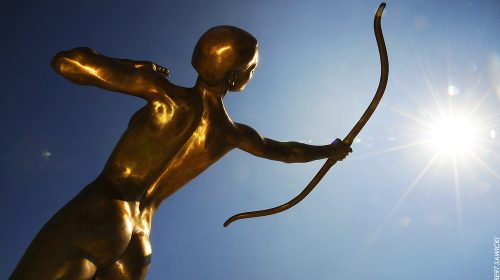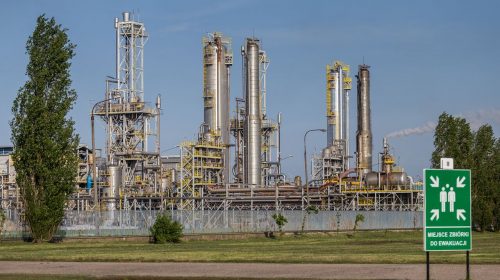The film depicts the life of Father Jerzy, from his childhood in the country to the time when his vocation was forming during his stay in the army, and the process of his becoming a legend during the difficult times of communism, until his brutal murder, and the funeral which drew together almost half a million Poles.
Rafał Wieczyński’s film is a story about a man, who, from being a modest boy
from a village in Podlachia, became a spiritual leader of the country and a symbol of courage in the fight for freedom and truth. Popiełuszko’s story is presented in the context of significant events in Poland in the 80s, which were recreated in the film. These include the riots of August ’80 and demonstrations during martial law, brutally suppressed by the Government of the Polish People’s Republic.
Thanks to his extraordinary spiritual strength, warmth, and sense of humour, Father Jerzy became a father figure and won people over. His murder, and the disclosure of its circumstances, came as a huge shock, and provoked outrage among society. To this day many doubts are raised in connection with this crime.
Bydgoszcz and Włocławek
The film was shot in the Kujawsko-Pomorskie Voivodeship in Bydgoszcz, at the Święci Polscy Bracia Męczennicy church, and on Fordon Bridge, whereas the key scene was shot at the dam on the Vistula in Włocławek.
Trivia
- The principal photography took place between 19th August 2007 and April 2008.
- The film was shot in over fourteen towns and cities, including Suchowola, Bartoszyce, Warsaw, Kraków, Katowice, Bukowina Tatrzańska, Częstochowa, Bytom, Gdańsk (St. Bridget’s church), Bydgoszcz (The Świętych Polskich Braci Męczenników church, Fordon Bridge), near Radzymin, and in many more locations.
- Adam Woronowicz, who played Father Jerzy, made every effort to be fully prepared for the role; he even spent a week in a seminary, where he had no contact with the rest of the world. In one of the interviews he admitted that a great experience during his preparation for the film was the meeting with Jerzy’s mother and his brothers, as well as the visit to the house where Fr Popiełuszko grew up.
- Over 700 extras took part in the scene in Castle Square in Warsaw, where the events of May 1982 were filmed.
- The film cast consisted of over 7000 actors and extras.
- Moreover, many witnesses of those events played in the film as well, including Cardinal Józef Glemp.
- One of the extras was Rafał Budzbon, the opposition activist, who participated in the last Mass celebrated by Jerzy Popiełuszko on 19th October 1984 in the Świętych Polskich Braci Męczenników church in Wyżyny, Bydgoszcz. In an interview for Gazeta Pomorska he says “I remember that on that day there were a lot of people there. Father Popiełuszko didn’t give a sermon. We said the Rosary. No one could have guessed that was his last Mass”.
- Rafał Wieczyński, the Director and screenwriter of the film, had been preparing for the work on it for six years.
- The film, which is a feature biography, also uses archival materials, including photos of Father Popiełuszko, videos from the Pope’s visits, and of the funerals of figures significant at that time.
- The official premiere took place on 16th February at the Teatr Wielki theatre in Warsaw. Among the guests was President Lech Kaczyński, Primate of Poland Cardinal Józef Glemp, Metropolitan Archbishop Kazimierz Nycz, Marshal of the Sejm Bronisław Komorowski, and the family of the murdered priest, including his mother, Marianna Popiełuszko.
Information on the film
Popiełuszko. Wolność jest w nas / Popieluszko: Freedom Is Within Us
Poland, 2009, 149’
Directing: Rafał Wieczyński
Screenplay: Rafał Wieczyński
Shooting: Grzegorz Kędzierski
Music: Paweł Sydor
Production: Focus Producers
Cast: Adam Woronowicz, Marcin Klejno, Artur Balczyński, Zbigniew Zamachowski, Radosław Pazura, Maja Komorowska, Joanna Szczepkowska, Jan Englert, Krzysztof Kolberger, Agnieszka Jaworska, Dominika Nikoniuk, Kacper Kuniawka, and others.
Selected Awards and Distinctions
The Award of the Dzieło Nowego Tysiąclecia Foundation, established by the Polish Episcopacy – Totus; the Polish Film Award: Eagle – nomination in category Best Production Design for Andrzej Kowalczyk; the Grand Prix at the International Catholic Film and Multimedia Festival KSF Niepokalana; the Film Festival in Gdynia – nomination for a Golden Lion; Złota Kaczka nominations in the categories Best Film, Best Actress, Best Actor, Best Camera Work, Best History Costume Drama in a Century of Polish Cinema, Best Screenplay; and others.


